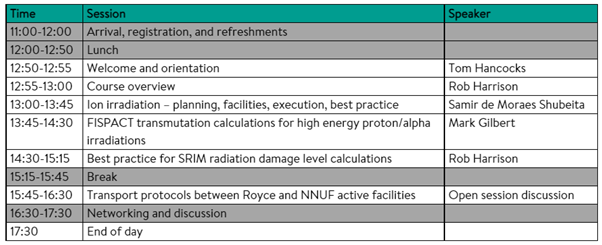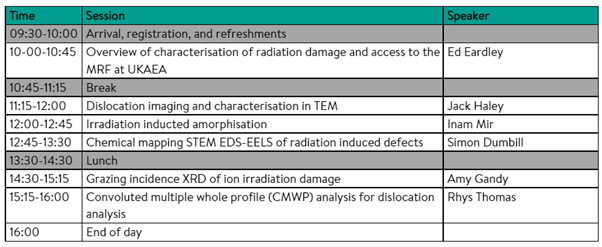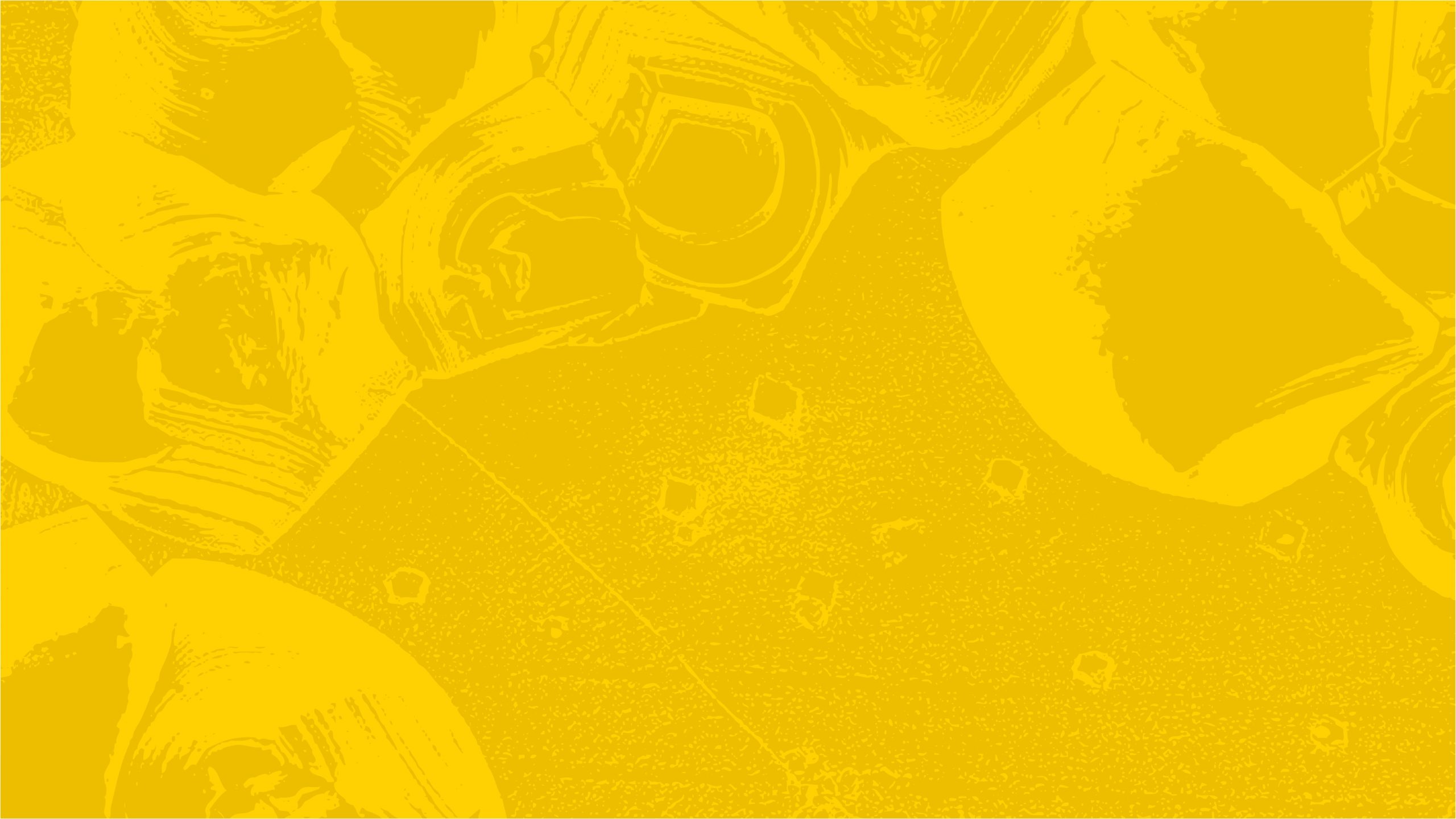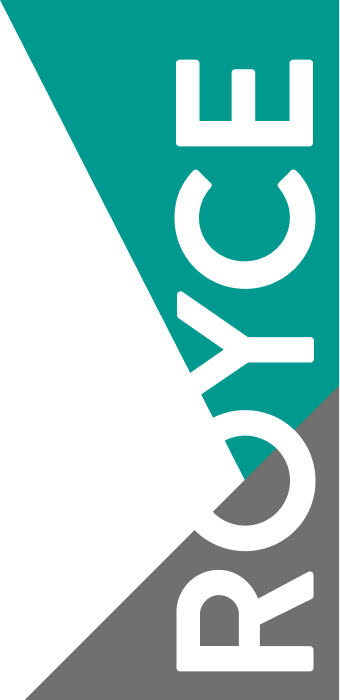Overview
This course explores procedures and techniques for the planning, preparation, and running of ion irradiation and characterisation experiments. The content will go beyond standard use cases familiar to most researchers and will introduce examples and processes that can help unlock the full potential of these approaches. Ultimately, participants will gain a deeper knowledge of best practice in this research area and provide useful guides on how to fully use these techniques available through Royce partners and the wider UK nuclear research community.
The course will cover:
- Accessing Royce facilities for irradiation experiments and materials characterisation
- Planning, facility selection and execution of io beam irradiations
- Including training on DPA and transmutation calculations
- Available radiation damage techniques and appropriate facilities
- Guidance on EM characterisation of induced damage:
- Two-beam and weak beam dark field techniques for dislocation
- Selected area diffraction pattern analysis for amorphisation studies
- Elemental and composition changes via EDS and EELS analysis
- X-ray diffraction-based techniques to examine radiation damage
- Grazing incidence XRD
- Convolutional multiple whole profile (CMWP) analysis
Background and motivation
Ion beam irradiations are frequently used in nuclear materials research and engineering to replicate aspects of neutron irradiation damage. Experiments can achieve levels of damage within hours or days, compared to year-long neutron irradiation campaigns. The approach also avoids intendent activation of the materials that would then require specialist handling.
Running these experiments is complex, and care is needed when selecting ion irradiation type and run parameters. Consideration must also be given to the materials and generated defects when planning for downstream advanced characterisation techniques, such as transmission electron microscopy (TEM) and X-ray diffraction (XRD). These challenging criteria require robust and well-defined approaches in experimental design to enable accurate investigation of nanoscale defects.
Audience
This course is suitable for researchers working in both academia and industry that want to develop their knowledge on ion beam irradiation experiments and materials characterisation. Researchers seeking to refine their existing protocols and understand current best practice would also be welcome to attend and contribute to the discourse.
Learning outcomes
After the course participants should be able to:
- Select appropriate facilities at Royce partners for their irradiation and materials characterisation work
- Design characterisation experiments with best practice in mind
- Follow established guidance for running EM and X-ray characterisation experiments
- Begin preliminary analysis on the data derived from these experiments
Programme
Day 1

Day 2

Organisers
- Rob Harrison, The University of Manchester
- Samir de Moraes Shubeita, Dalton Cumbrian Facility
- Amy Gandy, University of Sheffield
- Simon Dumbill, National Nuclear Laboratory
- Ed Eardley, UKAEA
Speakers
- Mark Gilbert, UKAEA
- Jack Haley, UKAEA
- Inam Mir, University of Huddersfield
Register now
March 3 2023



